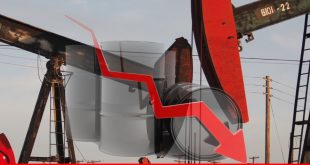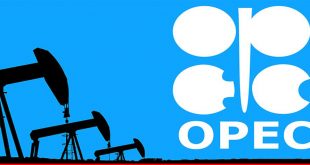Interview with Mr. Mumtaz Hasan Khan – Chairman & CEO, Hascol Petroleum Limited
Profile
Mumtaz Hasan Khan Chairman and CEO of Hascol Petroleum Limited has over 50 years of experience in the oil industry. He started his working life in Burmah Shell Oil Storage and Distribution Company in May 1963 and worked there till January 1976, where his last assignment was International Sales Manager.
From February 1976 to July 1980 he served as Managing Director, Pakistan Services Limited, which was the owning company of four Intercontinental Hotels in Pakistan.
In August 1980 he moved to London to start his own oil trading business and established Hascombe Limited, which started trading in crude oil and petroleum products and was a major supplier of petroleum products to Pakistan in the 1990s. Hascombe bought crude and products from Middle Eastern sources and sold to major international trading companies like Shell and Elf.
Under his leadership Hascol has been granted an oil marketing license in 2005 by the Government of Pakistan, and now Hascol has established a retail network of over 300 petrol pumps and CNG stations from Karachi to Peshawar.
Mumtaz Hasan Khan is also the Chairman of Sigma Motors Limited (sole distributor of Land Rover vehicles in Pakistan). He is also a Trustee of the Foundation of Museum of Modern Art (FOMMA) and is on the Board of Pakistan Refinery Limited (PRL).
Mumtaz Hasan Khan was also a member of the Expert Energy Group, which prepared the country’s first Integrated Energy Plan in 2009.
Mumtaz Hasan Khan, (MHK) Chairman and CEO Hascol Petroleum, who carries a 50-year experience in the oil industry to his professional credit while sharing his views regarding impact on oil price fall globally said that sharp decline in oil prices helped improving profitability of the refining sector across the world.
PAGE: Would you like to share the impact of oil price fall on refining sector?
MHK: The price fall of crude oil in the international market has been beneficial for gross refining margins. Most refineries all over the world have seen improvement in their profitability with the decline of crude oil prices.
In Pakistan also, most refineries with the exception of Byco have seen an improvement in the gross refining margins.
PAGE: Are we importing more white oil compared to crude due to price fall?
MHK: We are importing more white oil not due to fall in the price of crude but, because of increase demand in motor gasoline.
Moreover, all the refineries in Pakistan do not have an isomerization plants. PRL is the first one who installed an isomerization plant last year and now Attock Refinery Limited and National Refinery Limited are also in the process of doing the same. When all isomerization plants are in operation, production of motor gasoline in Pakistan will increase and hopefully lead to reduction in imports.
PAGE: What is your opinion about oil refining capacity of Pakistan — Do we need more refineries in Pakistan?
MHK: Pakistan certainly needs more refineries, if we are to be self sufficient in motor gasoline and diesel. Moreover, the types of refineries we need are not simple distillation unit but more complex refineries with secondary processing units like hydrocracker or a coker. This will maximize production of white oil and make the refineries more profitable.
PAGE: Would you like to share the performance of your refinery especially financial performance in the current scenario?
MHK: I think, all the refineries except Parco publish their quarterly results as they are listed companies. As far as I know, Parco is also having excellent financial results.
PAGE: How the energy sector can get rid of circular debt issue, is your company a victim of circular debt?
MHK: The circular debt problem is mainly related to PSO and its supplies of fuel oil to the power sector. It is the inefficiency of the power sector to recover their dues and pay PSO on time that has contributed to the circular debt issue in the energy sector.
As far as Hascol is concerned, we are not a victim of circular debt, as we are only supplying fuel oil on secure credit terms.
PAGE: How do you see the outlook of refining sector in Pakistan?
MHK: The refineries in Pakistan need to be upgraded and this requires huge capital expenditure.
The government has been requested to make investment in the refining sector attractive by eliminating duties on import of plants/equipments required to upgrade/expand refineries.
So far, the government has not issued a policy document, which would make investment in the refineries and attractive proposition.
PAGE: What are your views about falling oil prices — do you think stability will return to oil sector in near future?
MHK: The oil prices have recently stabilized between 40-45USD/barrel. In my view, we will not see 100USD/barrel till 2020, unless, there is a major geo-political event.
 PAGE Blog Business Weekly Magazine
PAGE Blog Business Weekly Magazine

